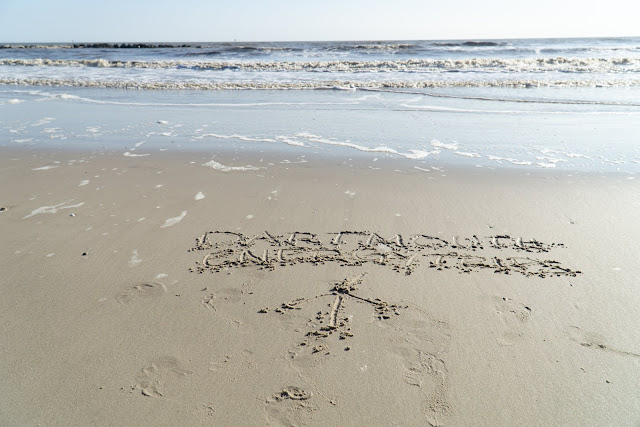Houston, Day One
Texas’s History and Natural Resources: Discovery and Extraction
What a first day! After a long day of travel for everyone yesterday, today was a great introduction to the trip and to Houston. We had a leisurely morning, with some trippees going for a run and others sleeping in or enjoying a relaxing start to their day. Our first destination was the Houston Museum of Natural Science, a short drive from the Airbnb. The Museum was highly recommended, and it certainly lived up to the hype. Unfortunately, we only had time to explore one part of the museum, the Wiess Energy Hall, but this one section was overflowing with fascinating information. Half of the floor was dedicated to exploring natural gas and oil, while the other was dedicated to renewable energies and nuclear power. There was so much to see and explore that many of us only found time to explore one side! There was strong sentiment among the group that the museum was fantastic and many expressed a desire to return to the museum during our afternoon off in Houston later in the week.
After spending the hour meandering through the Energy Hall, we rendezvoused with John Jeffers, a Dartmouth ‘85, Director of Geosciences at Southwestern Energy. At this point we were joined by Elizabeth Wilson, Director of the Irving Institute for Energy Society (which is generously sponsoring this trip) and a new professor in the Environmental Studies department. We used a classroom in the museum and were graced with a wonderful presentation by Mr. Jeffers as an introduction to the oil and gas industry, with special emphasis on the Gulf Coast. He was very accommodating and encouraged us to interrupt him with any questions we had during the presentation.
Mr. Jeffers and Professor Wilson accompanied us to our next stop, the Denbury Resources Oil Field. We were given a wonderful and informative tour of the field by Will Houston, a field tech who has been working at Denbury for 21 years. We began the tour by visiting the office where the entire system of extraction and production is monitored. Mr. Houston and the other Denbury employees in the office graciously and knowledgeably answered all of our questions about the operation before we continued the tour. The remainder of the tour was spent driving around the field in the van with Mr. Houston providing insight into the functions of the structures we were rolling past. We were shown the active wells, the salt water treatment site, and the production site where the oil is separated into its composite parts. The group found the tour a great way to visualize the process we were learning about in our education sessions and in Mr. Jeffers's presentation.
| Elizabeth Wilson, Director, Irving Institute for Energy & Society joined for a tour of Denbury Resources Oil Field. |
We then headed out to Galveston to view offshore oil rigs at Gulf Copper, sans Mr. Jeffers and Professor Wilson. Gulf Copper is a company with a focus on dry dock and oil rig repair. Mike and Eric, two employees, gave us a walk around the property and answered questions along the way. We were all impressed by the size of the oil rigs docked off the pier, which can hold hundreds of rig workers, and were shocked to learn that there are rigs that are even larger and can hold up to 750 workers. There were also several impressive cranes, which Mike informed us bring in money for Gulf Copper because of their load capabilities. Some of the other cool machines we saw were a steel crushing machine, a steel flattening machine, and a steel cutting machine. Some notable things we learned were that many oil rig repair companies are struggling to stay open with the recent downturn in offshore drilling that is a consequence of the upturn in land drilling. Gulf Copper has been able to stay open, although at ten percent of their usual capacity in terms of number of workers. Mike also mentioned programs that are attempting to recruit more women and minorities into the industry that is an attempt to combat the decrease in skilled laborers. Our tour had a beautiful finish thanks to a gorgeous southern sunset. We finished off the day with a quick stop at H.E.B., a Texas supermarket, and a delicious pasta dinner.
| We tour an offshore oil rig docked for maintenance. |
There was consensus that we enjoyed meeting with the employees, interacting with them, and discovering how knowledgeable they are. A lot of us also noted that we gained a new appreciation for everything behind fossil fuels, including the immense infrastructure and the large number of people who depend on them for their living. It’s not as simple as just switching to strictly renewables.
Personally, I found the day challenging at times because of how technically dense the information we were learning was. As a potential government major, I had not encountered a lot of the terminology and science that we learned today, and so processing so much so fast was hard for me. However, much of the group, myself included, found it valuable to start the immersion trip by completely immersing ourselves in the foundations of the oil and gas industry. I am excited for the rest of trip, especially once we start speaking with individuals working in energy policy and I am able to connect this science to the policy side that interests me.
By Maria Smith-Lopez '21
By Maria Smith-Lopez '21


Comments
Post a Comment